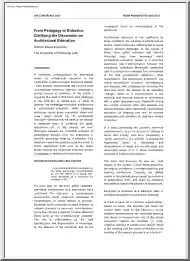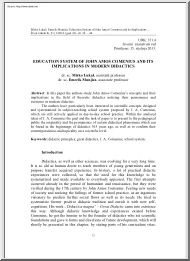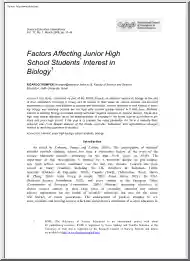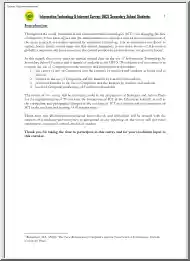A doksi online olvasásához kérlek jelentkezz be!
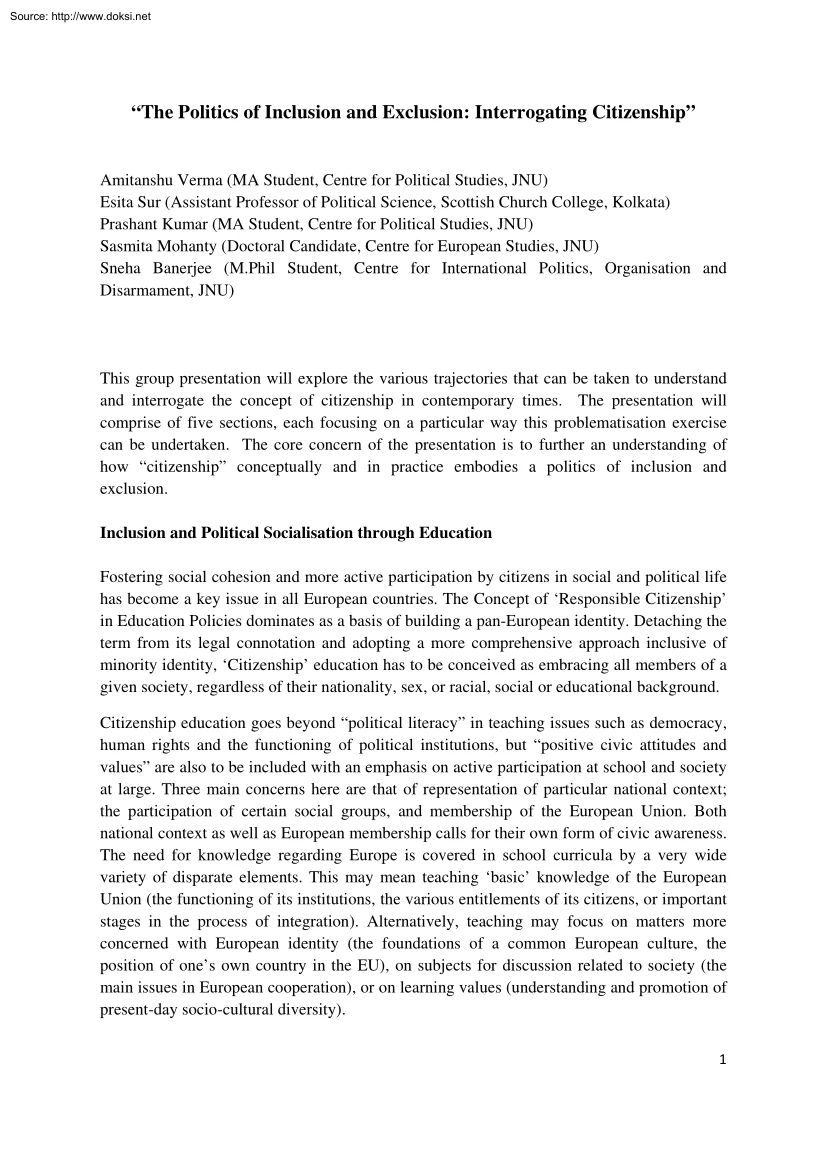
A doksi online olvasásához kérlek jelentkezz be!
Nincs még értékelés. Legyél Te az első!
Mit olvastak a többiek, ha ezzel végeztek?
Tartalmi kivonat
Source: http://www.doksinet “The Politics of Inclusion and Exclusion: Interrogating Citizenship” Amitanshu Verma (MA Student, Centre for Political Studies, JNU) Esita Sur (Assistant Professor of Political Science, Scottish Church College, Kolkata) Prashant Kumar (MA Student, Centre for Political Studies, JNU) Sasmita Mohanty (Doctoral Candidate, Centre for European Studies, JNU) Sneha Banerjee (M.Phil Student, Centre for International Politics, Organisation and Disarmament, JNU) This group presentation will explore the various trajectories that can be taken to understand and interrogate the concept of citizenship in contemporary times. The presentation will comprise of five sections, each focusing on a particular way this problematisation exercise can be undertaken. The core concern of the presentation is to further an understanding of how “citizenship” conceptually and in practice embodies a politics of inclusion and exclusion. Inclusion and Political Socialisation through
Education Fostering social cohesion and more active participation by citizens in social and political life has become a key issue in all European countries. The Concept of ‘Responsible Citizenship’ in Education Policies dominates as a basis of building a pan-European identity. Detaching the term from its legal connotation and adopting a more comprehensive approach inclusive of minority identity, ‘Citizenship’ education has to be conceived as embracing all members of a given society, regardless of their nationality, sex, or racial, social or educational background. Citizenship education goes beyond “political literacy” in teaching issues such as democracy, human rights and the functioning of political institutions, but “positive civic attitudes and values” are also to be included with an emphasis on active participation at school and society at large. Three main concerns here are that of representation of particular national context; the participation of certain social
groups, and membership of the European Union. Both national context as well as European membership calls for their own form of civic awareness. The need for knowledge regarding Europe is covered in school curricula by a very wide variety of disparate elements. This may mean teaching ‘basic’ knowledge of the European Union (the functioning of its institutions, the various entitlements of its citizens, or important stages in the process of integration). Alternatively, teaching may focus on matters more concerned with European identity (the foundations of a common European culture, the position of one’s own country in the EU), on subjects for discussion related to society (the main issues in European cooperation), or on learning values (understanding and promotion of present-day socio-cultural diversity). 1 Source: http://www.doksinet How Technology Problematises Conventional Citizenship in Contemporary Times Arguably, the way Industrial Revolution opened avenues for technology
to intermesh with politics subsequently in ways perhaps inconceivable before. It is particularly interesting to explore how technology constitutes experiences of citizenship. While technology facilitates a ‘beyond borders’ experience of citizenship, technology itself has also been an instrument for the state to keep enhanced surveillance on both citizens and non-citizens – be it the Indian government’s efforts to give every citizen a Unique Identification number or the controversial radio-tagging of immigrants in the United States. The internet and its ‘information revolution’ have made it possible for one to be a ‘citizen of the world’. It is possible for a person anywhere in the world to proclaim on Facebook “Ana aydan Masri! - I too am an Egyptian today” in solidarity with protesters at the Tahrir Square. Technology in contemporary times has the potential of not only transforming the ‘experience’ of citizenship but also opens avenues to problematise even the
‘fact’ of conventional citizenship. An illustrative example is the widespread transnational usage of Assisted Reproductive Technologies (ARTs), particularly that of using women as commercial gestational surrogates. There is a booming market of transnational gestational surrogacy arrangements in the global South with India emerging as a hub, where commissioning parents are mostly from the advanced industrialised countries. However, in such arrangements when the commissioning parents are from a country that either bans or not recognises surrogacy, children born through surrogacy in India often run the risk of being ‘stateless’. Muslim Women and dynamics of their culture, community and citizenship rights The concept of citizenship as understood in India has a liberal connotation. The Indian state guarantees the freedom and formal equality to the every individual. But in words of JM Barbalet, a political system of equal citizenship is in reality less than equal if it is a part of a
society divided by unequal conditions. So can these formal rights vested in the democratic constitution meet the needs of the Muslim women who are socially, economically and politically so marginalized? Since Independence Indian state has not only extended citizenship rights to all but it has also incorporated the notion of differentiated citizenship to ensure cultural rights of minorities on the basis of this assumption that the autonomy of community enables the enjoyment of number of political goods. But does it ensure the rights of those women who belong to minority community and are marginalized because of their identity of being a woman as well as member of minority community? This theme tries to highlight, how culture as well as social institutions like laws, norms, traditions and codes of conduct, including Muslim personal law constitute the single most important factor in determining women’s freedoms of choice, action and their capacity for exercising citizenship rights. The
influence of religious institutions as well as culture and their domination over the interpretation of Islamic jurisprudence governing Muslim women’s roles and rights not only controls their access to public sphere as well as basic primary goods 2 Source: http://www.doksinet but it also hampers their capability to exercise their choices. And this creates the dynamics of their unequal citizenship. (Un)Workability of the Normative Conception of Citizenship in the Neoliberal Time This section tries to explain how the “liberal conception of the citizenship that placed the right -bearing individual with equal opportunity in matters of participation in socio-economic and political sphere of society” has been considerably superseded by the strengthening position of the neo-liberal tendencies. Attempt would be to show how even the very instrumentality of citizenship can be used as an exclusionary device by the neoliberal state. In India the process of liberalization that started in
1980s as an effort of structural adjustment to be in tune with the capitalist world economy has created residual category of citizenship. In the whole process, several contemporary political scientist have noted a shift in the language of citizenship from social rights to competition, productivity and efficiency, and from the public to the private and individual responsibility which have reduced the political and discursive space for citizenship and its components of social rights. The obsession with “maintenance of growth-rates” has intensified the process of social exclusion and it has become an integral part of the developmental logic embodying the rhetoric of social action planning. Within the realm of social citizenship, political and economic rights tend to get interwoven such that one form of deprivation leads viciously to another consummating a process of exclusion. Thus, the imperatives of globalization(which Aijaz ahmad terms as the universalisation of capital) in the
form of neo-liberal policies leading to the erosion of social rights and the gradual abdication by the state of its social responsibility has meant that those belonging to the marginalized sections have been deprived of the resources which create the conditions for substantive citizenship. And in this way, members of disadvantaged sections continue to be exploited by the everyday structures of oppression. Economic and Cultural Exclusion through the Juridical Instrumentality of citizenship by the State This section interrogates the narrative of global citizenship grounded in the recent emergence of global organizations and linkages, and attempts to bring to light the exclusions that inform the exercise of writing the citizen. Despite the universalizing claims in the wake of globalization, citizenship is being shorn of its connotations which imply individual participation in political affairs or popular sovereignty. There is an array of anti-immigration legislation regimes leading to a
reification of national boundaries and identities which include a process of excluding other alien/encroaching identities. Citizenship, thus, emerges as a site of power and exclusion. Moreover, notions and actual practices of citizenship policy remain entrenched in culturally and territorially specific contexts. 3 Source: http://www.doksinet At the socio economic level the recently revised immigration laws in United Kingdom illustrate how clauses of citizenship can handicap the ability of some people to immigrate for work, while facilitating others’, highlighting the primacy of the nation-state and limits of the notion of deterritoriality. At another level, state defined meanings of ‘national culture’ are weaved into the narrative of law to practice exclusion and citizenship laws are most susceptible to such manoeuvring. A conflation of economic interests and cultural elitism seems to be a contributory factor for the exclusionary character assumed by citizenship. In a
hierarchically ordered world, whose stratifications are inevitably mirrored in global organizations, the claim that owing to emergence of ‘post-national’ economic and political organizations there has been a de-territorialisation of political participation, is somewhat hollow. It is precisely because nation-states find themselves at variance on economic and political stands that hardly ever a consensus is reached on pressing issues, indicating an enduring failure of trans-national organizations to generate participatory networks with individual at the centre and renders it difficult to conceive a cosmopolitan citizen in global affairs. 4
Education Fostering social cohesion and more active participation by citizens in social and political life has become a key issue in all European countries. The Concept of ‘Responsible Citizenship’ in Education Policies dominates as a basis of building a pan-European identity. Detaching the term from its legal connotation and adopting a more comprehensive approach inclusive of minority identity, ‘Citizenship’ education has to be conceived as embracing all members of a given society, regardless of their nationality, sex, or racial, social or educational background. Citizenship education goes beyond “political literacy” in teaching issues such as democracy, human rights and the functioning of political institutions, but “positive civic attitudes and values” are also to be included with an emphasis on active participation at school and society at large. Three main concerns here are that of representation of particular national context; the participation of certain social
groups, and membership of the European Union. Both national context as well as European membership calls for their own form of civic awareness. The need for knowledge regarding Europe is covered in school curricula by a very wide variety of disparate elements. This may mean teaching ‘basic’ knowledge of the European Union (the functioning of its institutions, the various entitlements of its citizens, or important stages in the process of integration). Alternatively, teaching may focus on matters more concerned with European identity (the foundations of a common European culture, the position of one’s own country in the EU), on subjects for discussion related to society (the main issues in European cooperation), or on learning values (understanding and promotion of present-day socio-cultural diversity). 1 Source: http://www.doksinet How Technology Problematises Conventional Citizenship in Contemporary Times Arguably, the way Industrial Revolution opened avenues for technology
to intermesh with politics subsequently in ways perhaps inconceivable before. It is particularly interesting to explore how technology constitutes experiences of citizenship. While technology facilitates a ‘beyond borders’ experience of citizenship, technology itself has also been an instrument for the state to keep enhanced surveillance on both citizens and non-citizens – be it the Indian government’s efforts to give every citizen a Unique Identification number or the controversial radio-tagging of immigrants in the United States. The internet and its ‘information revolution’ have made it possible for one to be a ‘citizen of the world’. It is possible for a person anywhere in the world to proclaim on Facebook “Ana aydan Masri! - I too am an Egyptian today” in solidarity with protesters at the Tahrir Square. Technology in contemporary times has the potential of not only transforming the ‘experience’ of citizenship but also opens avenues to problematise even the
‘fact’ of conventional citizenship. An illustrative example is the widespread transnational usage of Assisted Reproductive Technologies (ARTs), particularly that of using women as commercial gestational surrogates. There is a booming market of transnational gestational surrogacy arrangements in the global South with India emerging as a hub, where commissioning parents are mostly from the advanced industrialised countries. However, in such arrangements when the commissioning parents are from a country that either bans or not recognises surrogacy, children born through surrogacy in India often run the risk of being ‘stateless’. Muslim Women and dynamics of their culture, community and citizenship rights The concept of citizenship as understood in India has a liberal connotation. The Indian state guarantees the freedom and formal equality to the every individual. But in words of JM Barbalet, a political system of equal citizenship is in reality less than equal if it is a part of a
society divided by unequal conditions. So can these formal rights vested in the democratic constitution meet the needs of the Muslim women who are socially, economically and politically so marginalized? Since Independence Indian state has not only extended citizenship rights to all but it has also incorporated the notion of differentiated citizenship to ensure cultural rights of minorities on the basis of this assumption that the autonomy of community enables the enjoyment of number of political goods. But does it ensure the rights of those women who belong to minority community and are marginalized because of their identity of being a woman as well as member of minority community? This theme tries to highlight, how culture as well as social institutions like laws, norms, traditions and codes of conduct, including Muslim personal law constitute the single most important factor in determining women’s freedoms of choice, action and their capacity for exercising citizenship rights. The
influence of religious institutions as well as culture and their domination over the interpretation of Islamic jurisprudence governing Muslim women’s roles and rights not only controls their access to public sphere as well as basic primary goods 2 Source: http://www.doksinet but it also hampers their capability to exercise their choices. And this creates the dynamics of their unequal citizenship. (Un)Workability of the Normative Conception of Citizenship in the Neoliberal Time This section tries to explain how the “liberal conception of the citizenship that placed the right -bearing individual with equal opportunity in matters of participation in socio-economic and political sphere of society” has been considerably superseded by the strengthening position of the neo-liberal tendencies. Attempt would be to show how even the very instrumentality of citizenship can be used as an exclusionary device by the neoliberal state. In India the process of liberalization that started in
1980s as an effort of structural adjustment to be in tune with the capitalist world economy has created residual category of citizenship. In the whole process, several contemporary political scientist have noted a shift in the language of citizenship from social rights to competition, productivity and efficiency, and from the public to the private and individual responsibility which have reduced the political and discursive space for citizenship and its components of social rights. The obsession with “maintenance of growth-rates” has intensified the process of social exclusion and it has become an integral part of the developmental logic embodying the rhetoric of social action planning. Within the realm of social citizenship, political and economic rights tend to get interwoven such that one form of deprivation leads viciously to another consummating a process of exclusion. Thus, the imperatives of globalization(which Aijaz ahmad terms as the universalisation of capital) in the
form of neo-liberal policies leading to the erosion of social rights and the gradual abdication by the state of its social responsibility has meant that those belonging to the marginalized sections have been deprived of the resources which create the conditions for substantive citizenship. And in this way, members of disadvantaged sections continue to be exploited by the everyday structures of oppression. Economic and Cultural Exclusion through the Juridical Instrumentality of citizenship by the State This section interrogates the narrative of global citizenship grounded in the recent emergence of global organizations and linkages, and attempts to bring to light the exclusions that inform the exercise of writing the citizen. Despite the universalizing claims in the wake of globalization, citizenship is being shorn of its connotations which imply individual participation in political affairs or popular sovereignty. There is an array of anti-immigration legislation regimes leading to a
reification of national boundaries and identities which include a process of excluding other alien/encroaching identities. Citizenship, thus, emerges as a site of power and exclusion. Moreover, notions and actual practices of citizenship policy remain entrenched in culturally and territorially specific contexts. 3 Source: http://www.doksinet At the socio economic level the recently revised immigration laws in United Kingdom illustrate how clauses of citizenship can handicap the ability of some people to immigrate for work, while facilitating others’, highlighting the primacy of the nation-state and limits of the notion of deterritoriality. At another level, state defined meanings of ‘national culture’ are weaved into the narrative of law to practice exclusion and citizenship laws are most susceptible to such manoeuvring. A conflation of economic interests and cultural elitism seems to be a contributory factor for the exclusionary character assumed by citizenship. In a
hierarchically ordered world, whose stratifications are inevitably mirrored in global organizations, the claim that owing to emergence of ‘post-national’ economic and political organizations there has been a de-territorialisation of political participation, is somewhat hollow. It is precisely because nation-states find themselves at variance on economic and political stands that hardly ever a consensus is reached on pressing issues, indicating an enduring failure of trans-national organizations to generate participatory networks with individual at the centre and renders it difficult to conceive a cosmopolitan citizen in global affairs. 4
